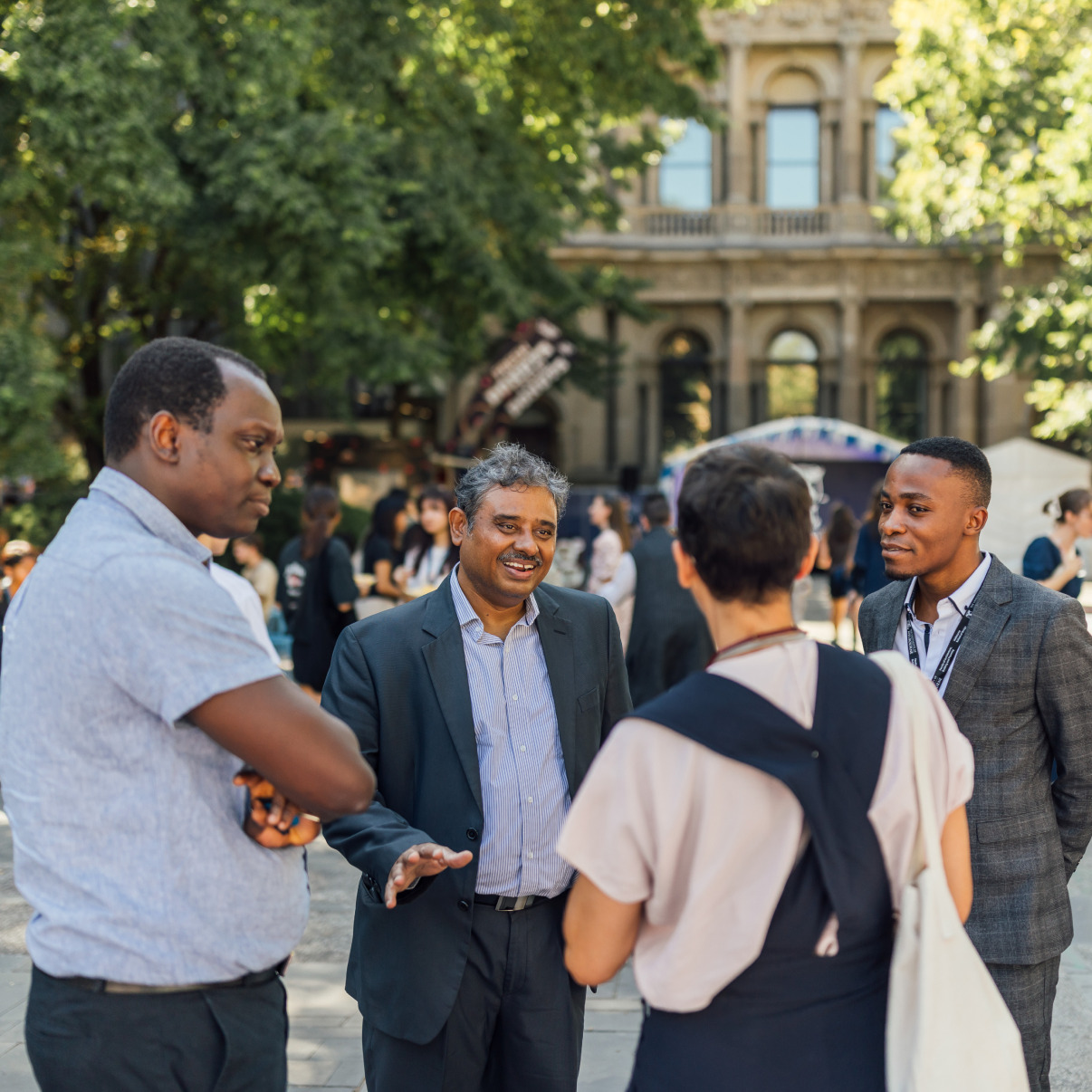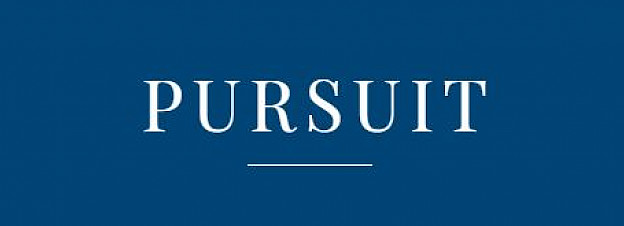
University of Melbourne Events Calendar
Featured events
MCM Grad Showcase 2025
Join us in celebrating the achievements of the 2025 graduating class from the Melbourne Conservatorium of Music! Immerse yourself in inspiring concerts, installations, and more.
The MCM Grad Showcase highlights the talent and diversity of our students across a wide range of specialisations, including Performance, Opera, Composition, Interactive Composition, Jazz & Improvisation, and IgniteLAB.
Please register for a full day ticket to attend any or all of these events.
CONCERT SEATING
Seating for concerts at Kenneth Myer Auditorium and Hanson Dyer Hall is available on a first-come, first-served basis. We recommend arriving early to secure your seat. Patrons are welcome to enter or exit freely throughout the performance. Please note that admission is subject to the discretion of the Front of House staff.
FOOD AND BEVERAGE
Betwixt Cafe & Bar will be open from 1PM - 5PM, and The Ian Potter Southbank Centre Level 3 Bar will be open 5PM - 8.30PM.
SCHEDULE
INSTALLATIONS/PRESENTATIONS
IgniteLAB Student Presentations
IgniteLAB will be running installations throughout the day at the Hanson Dyer Hall Foyer. There will be student presentations from 3PM - 3.30PM & 4.30PM - 5PM.
Interactive Composition Installations
Interactive Composition presents installations in the Kenneth Myer Auditorium foyer, as well as a digital showcase of graduating student works in the Hanson Dyer Hall foyer.
CONCERTS
JAZZ AND IMPROVISATION CONCERT
Kenneth Myer Auditorium, 1.45PM - 3PM
PROGRAM
Toby Barrett
Dawn
Performed by: Toby Barrett (saxophone), Anton Schulz (double bass), Will Ellerton (piano), Paddy Walter (drums)
Finn Milne
Obonu
Performed by: Finn Milne (piano), Dean Kalaitzidis (saxophone), Quinn Knight (drums)
Dean Kalaitzidis
Bright Tree
Performed: Dean Kalaitzidis (sax), Abi Lee (piano), Anton Schulz (bass), Quinn Knight (drums)
Clyde Saniga
The Bird Resistance
Performed: Clyde Saniga (saxophone) & 14 voices
Abi Lee
Trail Trial
Performed by: Abi Lee (piano), Dean Kalaitzidis (saxophone), Paddy Walter (drums)
Max Raz-Liebman
Wodan’s Oak: Mvt III - Devils
Performed by: Max Raz-Liebman (double bass), Yemo Wang (guitar), Paddy Walter (drums), Miro Lauritz (piano & vocals)
CLASSICAL PERFORMANCE CONCERT 1
Hanson Dyer Hall, 3.30PM - 4.30PM
PROGRAM
Mogens Andresen
2 Swedish Tunes for Trombone Quartet
Performed by: Oscar Milic & Renee Crump, Archer Bryett and Angus Hood
Sam Colcheedas
Sonata for cello and piano
I: Lament
II. Naivety
Performed by: Sam Colcheedas (piano) and Joshua Dema (Cello)
Aníbal Augusto Sardinha (Garoto)
Inspiracão
Performed by: Noa Silversten (electric bass)
Will Hartley-Keane
3 billion
Performed by: Maja Flood (clarinet)
Emmanuel Sejourne
Attraction for Marimba and Vibraphone with Tape
Performed by: Toby (Hei Tong) Lo
Louisa Trewartha
Suite Water
Just a Closer Walk – (traditional) arranged by Don Gillis
Performed by: Brava Brass Quintet - Naomi Dickers, Prue Russell, Sarah Camm, Sophie Ainsworth, Yael Marks
INTERACTIVE COMPOSITION CONCERT
Kenneth Myer Auditorium, 5PM - 6PM
Works by Interactive Composition graduates:
Holly Notarangelo and Brynn Jacka
Shapes in the dark
Todd Bennet
Statement Liberated into Air
Junaid Eastman
Tethered
Performers: Lexie May, Gisele Forsyth and Laiken Jackson
Robert Feher
Within Reach
Tom O’Reilly
Nostalgia for what never was
Dancers: Jake Ware, Eiren Chamley
CLASSICAL PERFORMANCE CONCERT 2
Hanson Dyer Hall, 6.30PM - 8PM
PROGRAM
Mikhail Glinka (arranged by Mili Balakirev)
The Lark
Performed by: Ashlynn Beh (piano)
Alain Bernaud
Hallucinations
Performed by: Each Zhang (bassoon) and Peter de Jager (piano)
Pyotr Ilyich Tchaikovsky
Violin Concerto in D Major, Op. 35
I. Allegro moderato
Performed by: Sujie Kim (violin) and Kevin Suherman (piano)
Richard Strauss
Four Songs (Selected)
Performed by: Kate Pengelly (voice)
Robert Schumann arr. Kazimierz Machala
Robert Schumann
Fantasiestücke for Horn and Piano
I. Zart und mit Ausdrück
II. Lebhaft, leicht
III. Rasch mit Feuer
Performed by: Jacob Fenchel (horn) and Kevin Suherman (piano)
Ludwig van Beethoven
Sonata for Violin and Piano in G Major, Op. 96
IV. Poco allegretto
Performed by: Phoebe Fan (violin) and Kevin Suherman (piano)
Alexander Rosenblatt
Carmen Fantasy
Performed by: Matteo Encena (piano), and Samuel Lee (piano)
PARKING
The City of Melbourne has recently changed the parking restrictions around the Southbank Campus. Parking control hours are now expanded to 7am–10pm, seven days per week, and are capped at three hours. A $2-per-hour fee after 7pm is also now in place. There is no change to the $4-per-hour peak rate between 7am–7pm. Parking inspectors are regularly in the area fining drivers who overstay their meter, so we encourage everyone to be aware and avoid an expensive fine.
ACCESSIBILITY
All venues at the Southbank campus are wheelchair accessible. To read more about access services available at our venues, please visit: https://finearts-music.unimelb.edu.au/access-our-events.
IMPORTANT INFORMATION
- Please stay home if you feel unwell, even with mild symptoms. Face masks are welcome in all settings for community and personal safety.
- In order to account for drop-off in attendance, we overbook a select number of free events at the Faculty. If you have not arrived by the start of the performance, your ticket may be released to any waiting patrons at the door. Please arrive at the venue at least 15 minutes before the performance to secure your seat.
- Admission to any of our concerts and events is strictly at the discretion of Front of House. We have zero tolerance for any disrespectful behaviour.
The radical act of reading
Dr Jennifer Buckingham OAM presents the final Dean’s Lecture of the 2025 series.
In an era of unfettered and unfiltered information, reading and writing and the acquisition of knowledge are more important than ever.
Over the past decade, there has been a gradual but discernible shift in schools toward evidence-based teaching methods to improve literacy rates, and a growing understanding that a sound education provides students with a mental trove of facts, concepts and ideas that will set them up for their future life.
These movements in the education world have been taking place as a tidal wave of technology has hit classrooms and homes, which has changed the way we read and write and has consequences for the way we think.
This lecture will make the case for schools to favour the radical act of real reading over artificial intelligence.
Registration is essential.
ACCESSIBILITY
If you have any support requirements in order to participate fully, please let us know via educationevents@unimelb.edu.au to ensure that we can arrange any reasonable adjustments.




